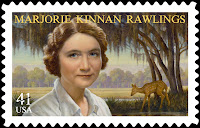
In the previous post Claire talks about happy. I want to talk about fun, something that perplexes me (as does happiness).
I am working on a novel due in August—you fellow writers understand what this means, yes? It means working on my novel, thinking about my novel, living with my novel ALL THE TIME. Except for the occasional rest-bit when I go swimming, walk the dogs, see a movie, or bother my husband (all while thinking about my novel.)
Recently, after telling my mother I couldn’t do something because I had to work she exclaimed: “You never have any fun! You need to have fun!” This reminds me of that dreaded first-date question: “What do you do for fun?” A question I have never been able to answer properly. (Perhaps why I never dated properly.)
What is “fun?” And is it true that I don’t have any? Is writing fun? Is it supposed to be fun?
I gave my mother an example of my ideal fun day: get up, walk dogs, work on novel (or current w-i-p) have lunch, play solitaire, work on novel (or current w-i-p), swim, and ending with some evening activity. (I don’t work on anything serious after dark—my brain only functions in natural light.) The evening activity usually means dinner with husband, watching a movie, and eating ice cream. Oh, sometimes I walk to the local bookstore or farmer’s market during lunchtime. That’s fun.
But this answer did not satisfy my mother. (just so you know she is the type that sends daily emails marked "just for laughs," consisting of photos of animals or vegetables doing various bizarre things.) Fun is perception, isn’t it?
I ask for your help here. Please tell me, what is fun? And do writers need it? (You do not have to tell me what you do for fun--just explain what it all means...)
(ps. Writing this blogpost was kind of fun. Does that count?)




